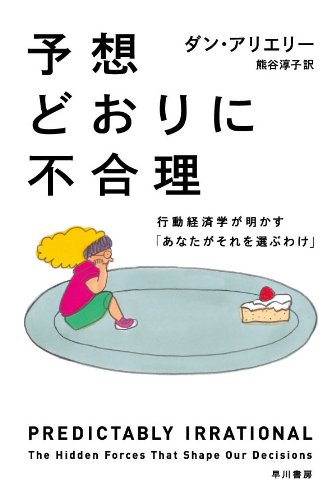- Published on
Why is it so difficult to choose a restaurant menu? ~The true meaning of "There's no free lunch" taught by behavioral economics~
Source: Dan Ariely, "Absolutely as Imaginable" (Hayakawa Publishing)
Roughly speaking
- Traditional economics assumes us as "rational people" with perfect computing power, but that's an illusion. We are surprisingly irrational.
- Even the everyday act of choosing a restaurant menu is lurking in numerous irrational biases, such as "relativity," "anchoring," and "paralysis of choice."
- But its irrationality is predictable. Understanding your own "mindfulness" is the first step to making better decisions and living like a human being.
Introduction: Why did you order pasta?
Enter the restaurant and open the menu. You are hungry and excited to know what to eat. But have you ever thought about how many "invisible forces" are at work behind those decisions?
My heart leaned towards the first "Today's recommendation" that caught my eye (anchoring), seeing the highest steak, I thought the pasta next to it was affordable (relativity), a friend ordered a fish dish, so I thought I'd make meat (unique desire), and there were so many options that I ended up choosing the same one as usual (Status-maintenance bias).
This series of thought processes is the very form of us humans depicted by Dan Ariely in "Absolutely Absurd." This book is full of intellectual excitement, revealing how unrealistic the model of "rational human" traditional economics is assuming is through numerous clever experiments.
To conclude the series, I would like to summarise the core message of this book about why we are so irrational and how we should deal with that irrationality.
The illusion of "rational human beings" in traditional economics
Traditional economics since Adam Smith is based on the premise of "homo economics." It's like a superman who always acts calmly and accurately, calculating in order to maximize his profits.
However, Ariely dismisses it by saying, "There's no one like that." We are swayed by emotions, succumb to immediate temptations, and repeat inconsistent actions. The key is that the mistakes are not random, but systematic and predictable. That's why we are "as expected."
Choosing a restaurant's menu is a perfect laboratory that condenses this irrationality. We are not judging absolute value in a vacuum. They are simply making uncertain choices, constantly being influenced by the context, the subject of comparison, and the emotions of the moment.
"There's no free lunch" True meaning
There is a famous saying in economics that "there is no free lunch." This is usually used to mean "any choice always comes with an opportunity cost (the value of other options that you give up after choosing it).".
However, behavioral economics gives this saying even more profound meaning. We are unable to rationally calculate the opportunity costs.
As Arielly has shown, we succumb to the magic of the word "free" and choose something unnecessary (zero price effect), overestimate its value once it's own (holding effect), or postpone decisions forever for fear of losing our options (holding effect).
In other words, we often pursue "free lunches" and end up choosing more expensive lunches.
[Improvement plan] Create your own "instruction manual"
So, how should we deal with this hopeless irrationality? Ariely is not pessimistic. He suggests that countermeasures are possible because our irrationality is "predictable."
Know your "mindfulness": The first step is to know what situation you are in and what kind of irrational judgments you should make. Just by learning the psychological effects introduced in this series and meta-aware that "Ah, I'm currently suffering from the effects of holdings," you can take a step back and calm down.
Design your environment: Rather than relying on willpower, it is important to design your own environment, which makes it difficult to make irrational choices. If you want to lose weight, don't put junk food at home. If you tend to postpone work, create a system where you can report on your progress with your peers (commitment device).
List your own irrational patterns and write down specific measures to deal with them. In other words, creating your own "instruction manual." That is the most personal and effective strategy for surviving this complex world.
Conclusion: Irrationality is the proof of humanity
What "Absurd as expected" teaches us is not a list of human "flaws." Rather, this is proof of our "humanity."
It is because we sometimes act inefficient, emotional, and contradictory that love is born, art is born, and society is born. If we were perfectly reasonable, this world would have been more efficient, but bland.
Accept your own irrationality, love it, and date wisely. This is the best guidebook for this is "as expected."
[Actions to encourage action] This series only introduces the opening to Dan Ariely's hilarious and intellectual adventures. This book is packed with more amazing experiments and insights that will overturn your common sense and change the way the world is seen. Take this "expectedly irrationality" and head out on a journey to discover your own "mindfulness."

